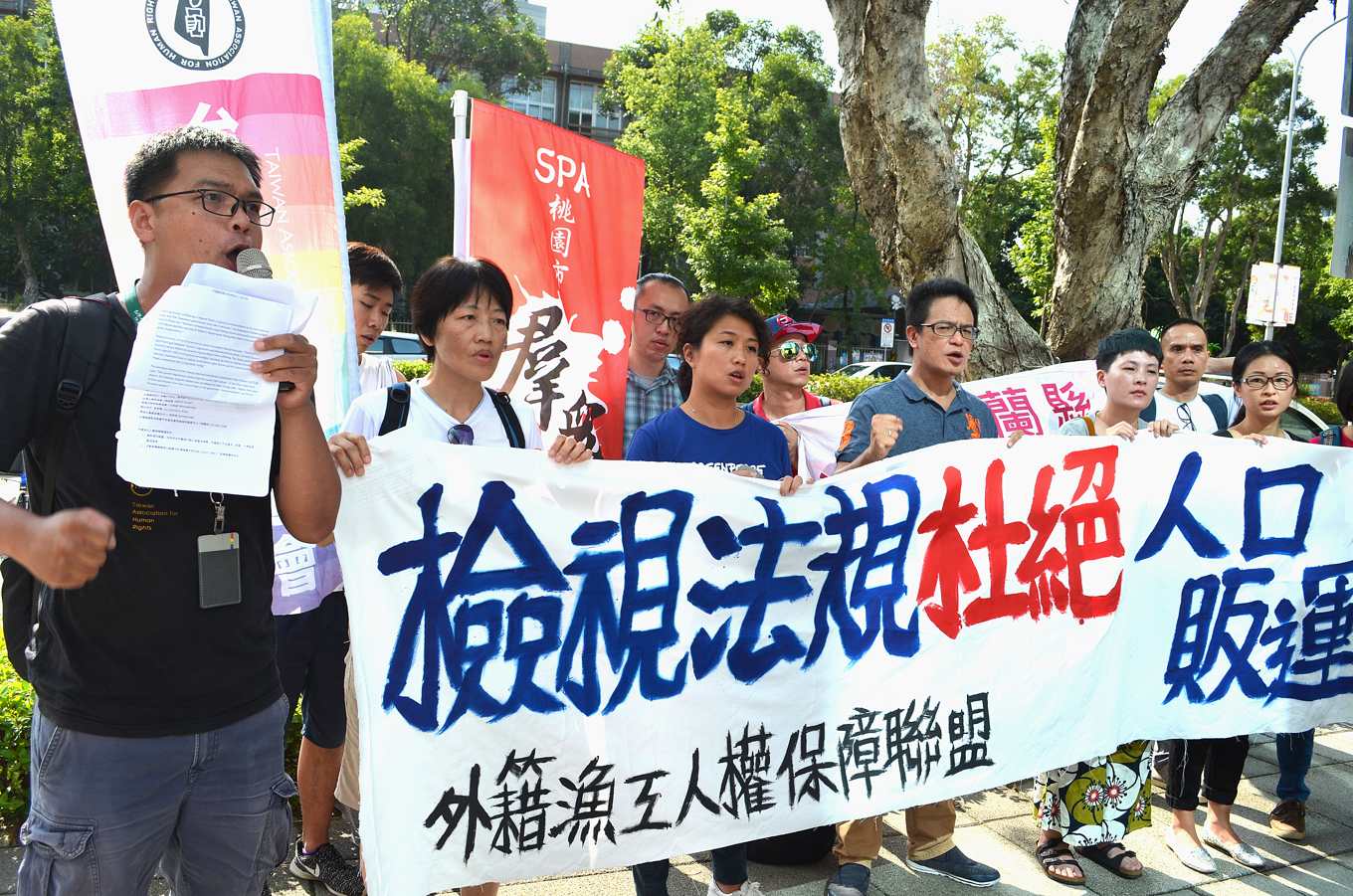Another deterioration of international image, Taiwan fishing boat "Fu Shen 11" detained South Africa, accused of poor labor environment
Share22 + 1 Tweet EmailShares 22
"face up to loopholes in laws and regulations and put an end to human trafficking!" The Alliance for the Protection of Human Rights of Foreign fishermen today (25) held a press conference in front of the Public Manpower Development Center of the International Workshop on the Prevention of Human trafficking to protest against the repeated outbreaks of abuse of fishermen, exorbitant wage deductions and poor working conditions in Taiwan.
The Alliance for the Protection of the Human Rights of Foreign fishermen said that it is ironic that the government has long neglected the exploitation of labor rights in offshore fishing, but has held an international seminar to discuss how to put an end to the problem of human trafficking. The government is required to reform the system, abolish overseas employment, and bring all foreign fishermen, both offshore and offshore, under the protection of the Labor Law, and at the same time sign the International Labour Organization fishing Convention, and put in sufficient manpower to carry out labour inspection of fishing vessels, set up complaint channels for fishermen, and so on.

.jpg)
From left to right are Li Lihua, Li Yikai, Wang Yingda and Chen Xiulian (Photo / Lin Shijun)
Fishery Department: Taiwan fishing vessels did not break the law
In response, Lin Guoping, deputy director of the Fisheries Administration, responded that ROC ocean-going fishing vessels must abide by the laws of other countries when entering the sea areas under the jurisdiction of other countries, but after confirming with the personnel of the ROC office in South Africa, it was preliminarily concluded that Taiwan fishing vessels were not involved in any illegal matters. As for why the ship was detained by South Africa without breaking the law, Lin said that someone had been sent to understand and was communicating. However, Li Lihua believes that if we really do not violate the rules, we should take the initiative to explain to the ILO and ask to withdraw the announcement, but the government has not taken any action so far.
Does South Africa have the right to inspect foreign fishing vessels? Lin Guoping explained that according to Port State Control, when our fishing boat sails through the coast of another country, the other party has the right to carry out inspection on the basis of navigation considerations, and there is no violation of the law.
As to whether offshore fishermen can be included in the "Labor Law" protection, Lin said that there are technical difficulties and still need time to communicate, but stressed that safeguarding the rights and interests of deckhands has always been the goal of inter-ministry efforts.
Note:
The seven demands put forward by the Alliance for the Protection of the Human Rights of Foreign fishermen:
1. Overseas employment should be abolished, and all foreign fishermen in Taiwan will be protected by the Labor Law. All foreign fishermen, whether offshore or offshore, will be managed by the Ministry of Labor.
Second, take the initiative to sign the International Labour Organization Convention on Fisheries work (ILO C188) and legalize it domestically.
Third, invest sufficient resources to improve the frequency and correctness of labor inspection of offshore and ocean-going fishing vessels, and if cases of human trafficking are found, they should be dealt with in a timely manner and severely punished.
Fourth, increase the conviction and prosecution rate of human trafficking, and strengthen the relevant education of judicial and law enforcement units.
(5) to propose a set of effective complaint channels for deckhands (especially the emergency complaints made by fishing vessels during their operation at sea).
Sixth, propose a schedule for the above five commitments.
7. Meet with relevant NGO regularly to review commitments and exchange views.
Share22 + 1 Tweet EmailShares 22
- Prev

Feeding techniques in different stages of Pig raising
Feeding techniques in different stages of Pig raising
- Next

The native black goat is super strong! Five sheep eat a hectare of poisonous Leucaena leucocephala a month.
The native black goat is super strong! Five sheep eat a hectare of poisonous Leucaena leucocephala a month.
Related
- A course of planting techniques and methods on how to grow carrots
- How to plant the latest tulips?
- Is it better to pick tea in the morning or in the afternoon? When is the best time for tea to be picked? what is the third or fifth tea?
- Launch Yuanxiao Happy combination Haocha + Tea Yuan healthy Taste
- Penghu Tourism "Fireworks 20 Parade with You"
- 2022 West Lake Happiness holds "Digital Revitalization Voucher" and draws iphone13 and laptop.
- Banqiao Fuzhou social houses are designed to change start-up combined with police elimination to create a safe and livable environment
- The convenient measure of "mechanical weeding" in Xinbei has been abused and the Agriculture Bureau has imposed heavy penalties on the illegal land consolidation.
- Changgeng University Joins Hands with Four Memory Factories to Rescue Memory Talent Shortage
- The list of Taiwan's top 100 MVP managers is listed by the Director-General of the Farmers' Association of Sanxia District.

